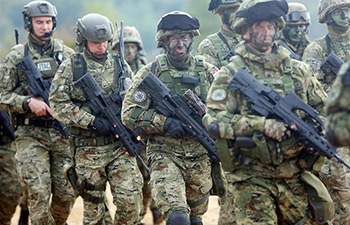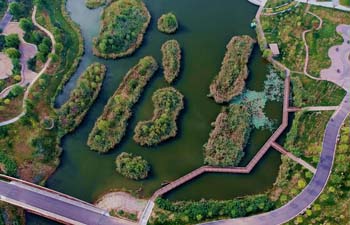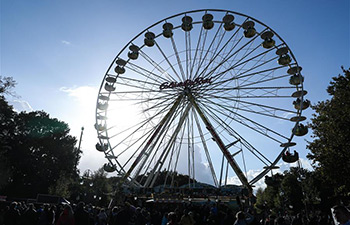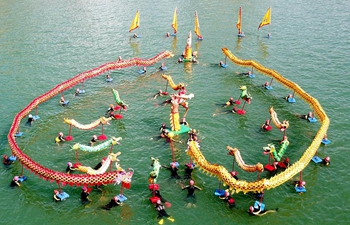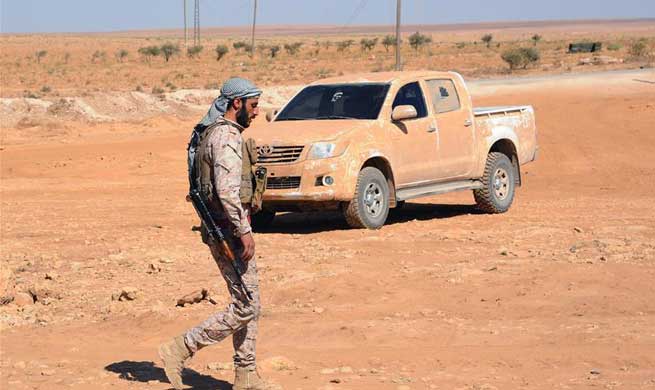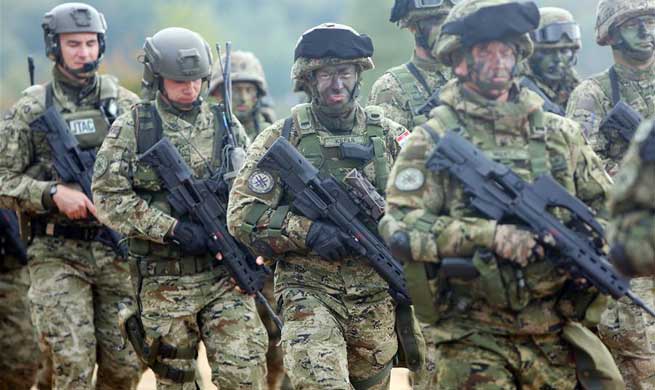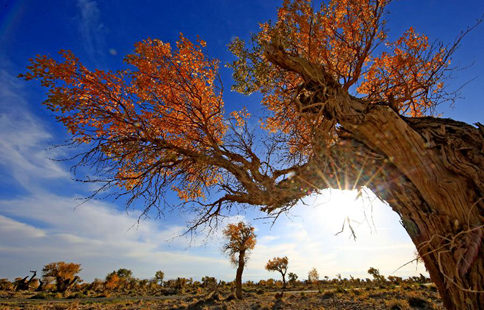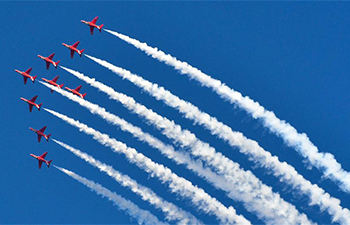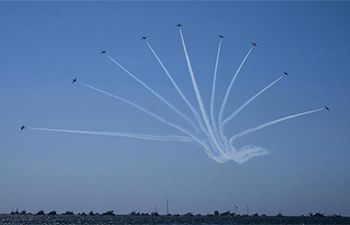
The Cuban Embassy in the United States is seen in Washington D.C., the United States, on Oct. 3, 2017. The U.S. government Tuesday announced it has asked for the departure of 15 Cuban diplomats from the Cuban embassy in Washington in response to mysterious "attacks" that led to the recall of some U.S. embassy staff in Havana. (Xinhua/Yin Bogu)
WASHINGTON, Oct. 3 (Xinhua) -- The U.S. government announced Tuesday that it has ordered the departure of 15 Cuban officials from its embassy here in response to the "mysterious" attacks on U.S. diplomats in Havana.
The new move has drawn criticism from Havana and escalated tensions between the two former Cold War enemies.
NEW TENSIONS
The decision of expulsion was made due to "Cuba's failure to take appropriate steps to protect our diplomats," said U.S. Secretary of State Rex Tillerson in a statement released on Tuesday.
This order will also "ensure equity in our respective diplomatic operations," the top U.S. diplomat added.
The expelled Cuban personnel have been required to leave the United States within seven days, an official from the U.S. State Department told reporters earlier in the day.
The request has been rebutted by the Cuban authorities, which accused it as "unjustified."
Cuban Foreign Minister Bruno Rodriguez said Tuesday that the U.S. demand was "based" on the fact that "Washington reduced its staff in Havana and that the island's authorities didn't take necessary steps to prevent attacks against U.S. diplomats."
"The Ministry of Foreign Affairs protests with energy and denounces this decision without base," Rodriguez told the press.
The latest step taken by the Trump administration followed the recall of more than half of the staff at the U.S. Embassy in Havana in the wake of the alleged "sonic attacks" that affected the health of some U.S. diplomats and intelligence personnel.
So far, 22 Americans working at the embassy in Havana have been confirmed to suffer from physical debilitations.
Cuba has said that the U.S. withdrawal of its diplomatic personnel is a "hasty decision" that will affect bilateral relations.
Meanwhile, Tillerson said in the statement that the United States would "continue to maintain diplomatic relations with Cuba," and to cooperate with Cuba as his country pursues the investigation into these attacks.
WHAT'S NEXT
Despite intensive investigative efforts made by the Cuban and the U.S. sides, the cause and perpetrators of the attacks remain unknown.
"We don't know what is causing this. We don't know who or what is responsible. That has not changed," said U.S. State Department spokeswoman Heather Nauert in a daily briefing on Tuesday.
The U.S. diplomats and their family members in Havana began reporting symptoms including hearing loss, dizziness, balance and visual problems, headaches and cognitive issues last December.
The Trump administration expelled two low-level Cuban diplomats in May in response to the incident.
The U.S. State Department has said that they need "full assurances" from the Cuban government that these attacks would not continue before they can even contemplate returning personnel, but did not specify what the assurances they were looking for are.
"We won't know until we get further down the road to hopefully figuring out what has caused this, and then we can reassess," said Nauert.
Last week, Tillerson discussed the incident with Rodriguez, the highest-level diplomatic contact between the two former Cold War enemies since Donald Trump was sworn in as U.S. president in January.
Rodriguez said after the meeting that the incidents shouldn't be made into a "political issue" and reiterated the importance of continuing the active cooperation with U.S. authorities to clarify the alleged attacks.
Some U.S. diplomats who were asked to leave Havana expressed their strong willingness to return in the near future.
"I am an optimist and hope we will return one day, before too long," Scott Hamilton, the top American official in Cuba, was quoted by U.S. media as saying.





